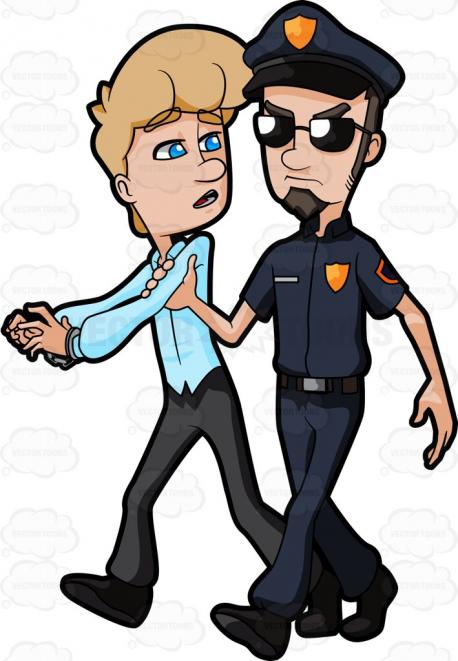Results: Arrested Development
Published on 05/31/2018
QUESTIONS
GO to COMMENTS
Comments
1.
1.
In certain situations, private individuals have the power to make an arrest without a warrant. These types of arrests, known as citizens arrests, occur when ordinary people either detain criminals themselves or direct police officers to detain a criminal. Citizens arrests are subject to fewer constitutional requirements than an arrest by law enforcement officers, but citizens arrests still have rules that govern them. Failure to abide by these rules can result in civil and criminal liability for the arresting individual. Have you heard of the term, Citizen's Arrest?

Yes
79%
1870 votes
No
21%
492 votes
2.
2.
Here the guidelines, regarding criteria for implementing a Citizen's Arrest. Choose the ones you are aware of: Felonies : A person can arrest someone that they reasonably suspect of committing a felony, even if the felony didnt occur in the presence of the individual making the arrest. As long as a felony was actually committed and the individual making the arrest knew of the crime, a reasonable suspicion about the identity of the perpetrator will justify their arrest. The felony must have actually occurred before an individual can make a citizens arrest. Even if a person reasonably believes that a felony has occurred, if the crime did not in fact happen, the person making the arrest could become civilly and criminally liable.
19%
455 votes
Breaches of the Peace: In general, people cant use citizens arrests for misdemeanors unless the misdemeanor involves a breach of the peace. Even in these circumstances, however, individuals can only make arrests when they have personally witnessed the criminal behavior and the breach has just occurred or there is a strong likelihood that the breach will continue.
12%
295 votes
Constitutionality of a Citizens Arrest: As mentioned above, a citizens arrest does not carry with it the same constitutional requirements that attach to an arrest by law enforcement officers. If, however, a person acts on the request of law enforcement, any arrest they carry out must meet the same constitutional standards as an arrest by the law enforcement officers themselves. For example, a citizens arrest upon the request of law enforcement would still have to comply with the Fourth Amendments restrictions against unreasonable searches and seizures and its warrant requirement. A citizen could also face prosecution under statutes that make it a crime to deprive someone of their constitutional rights. If a citizen acts on their own initiative in making the arrest, however, those same constitutional restrictions do not apply.
10%
232 votes
Reasonable Force: Despite the fact that citizens arrests do not carry the same constitutional requirements as a typical arrest, individuals must only use the amount of force that is reasonable and necessary to make the arrest. Just what exactly constitutes the reasonable and necessary amount of force depends on the facts surrounding each arrest. Juries will usually examine the facts surrounding a citizens arrest and make the determination of whether it involved excessive force.
13%
313 votes
Tort Liability: In addition to wrongful death lawsuits, a citizens arrest has the potential to expose individuals to other kinds of tort liability if the arrest was not justified. If a person does not comply with the laws requirements when making the arrest, the arrestee could allege a number of offenses in a personal injury lawsuit, including the aforementioned wrongful death, false imprisonment and assault and battery.
6%
146 votes
Every individual is empowered to arrest wrongdoers in certain circumstances, but individuals looking to make a citizens arrest act at their own risk. Not only is the act of apprehending a criminal inherently dangerous, but failure to meet the legal requirements for a citizens arrest could have devastating consequences for the person making the arrest.
18%
420 votes
Not Applicable
61%
1444 votes
3.
3.
Have you, yourself, ever made a Citizen's arrest? Yes
3%
75 votes
No
97%
2287 votes
4.
4.
Here is a hypothetical situation. Suppose person A has been verbally harassing person B for over a month. Person B finally involves law enforcement. Upon arrival, two officers arrive, each talking to one of the persons (A & B). Person A lies and says they are actually the person being harassed and want Person B arrested, using Citizen's Arrest. As a favor, law enforcement arrests Person B, who is actually the victim of many verbal assaults. Do you find this fair? Yes
9%
224 votes
No
91%
2138 votes
5.
5.
Regarding the information in question 4, do you find this unbelievably scary? Yes
68%
1605 votes
No
32%
757 votes
6.
6.
Now, check off what is true for you: I've put someone under Citizen's Arrest and it stuck
2%
55 votes
I've put someone under Citizen's Arrest and it did not stick
2%
43 votes
I've put someone under Citizen's Arrest and it got me into trouble, not them
2%
41 votes
I've been put under Citizen's Arrest but it did not stick
2%
44 votes
I've been put under Citizen's Arrest and it stuck
1%
27 votes
I've been put under Citizen's Arrest but it did not stick, and the person got into trouble not me
1%
21 votes
Other (please specify)
0%
6 votes
Not Applicable
92%
2175 votes
7.
7.
Thinking about Citizen's Arrest, overall in the long run, do you believe this does more good or more harm, that is, taxing and causing financial and time burden to the court system, etc More good
10%
237 votes
More harm
27%
646 votes
Not sure
63%
1479 votes
COMMENTS


